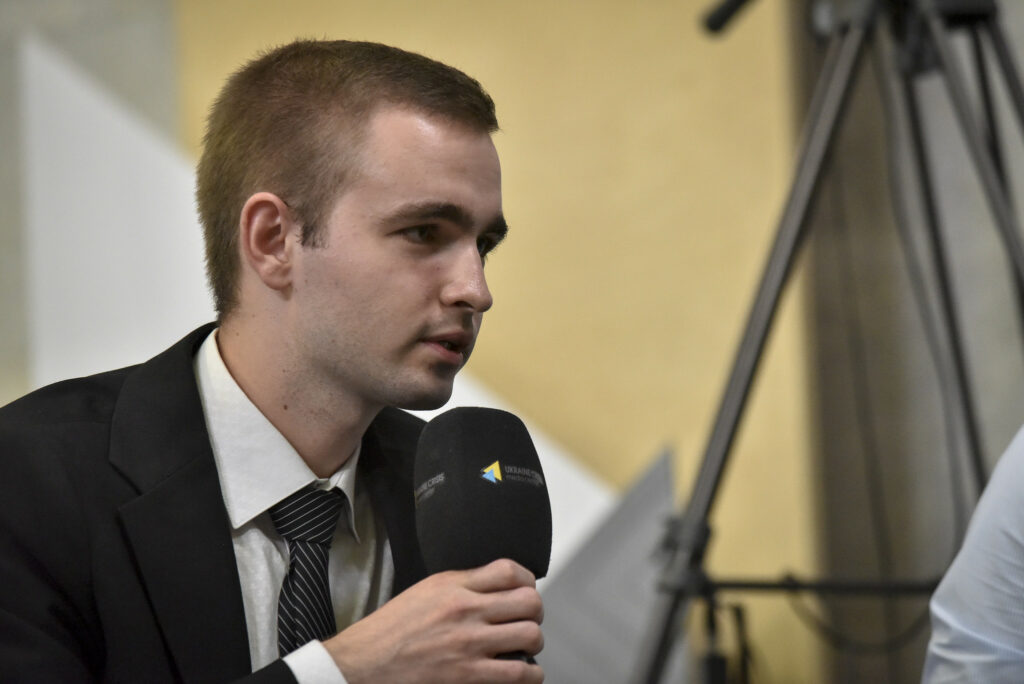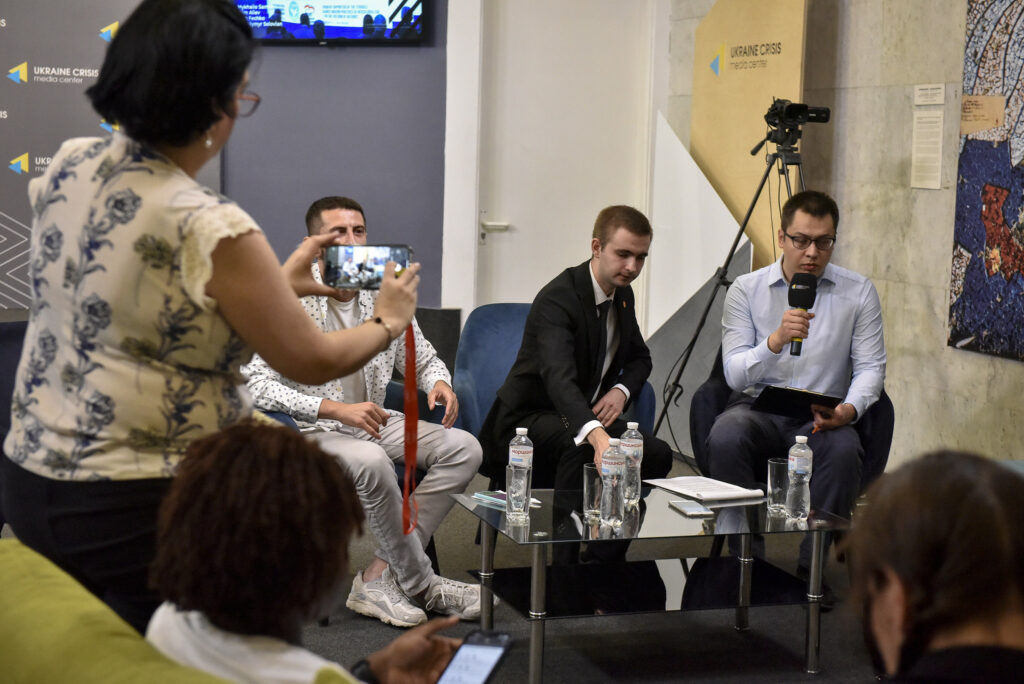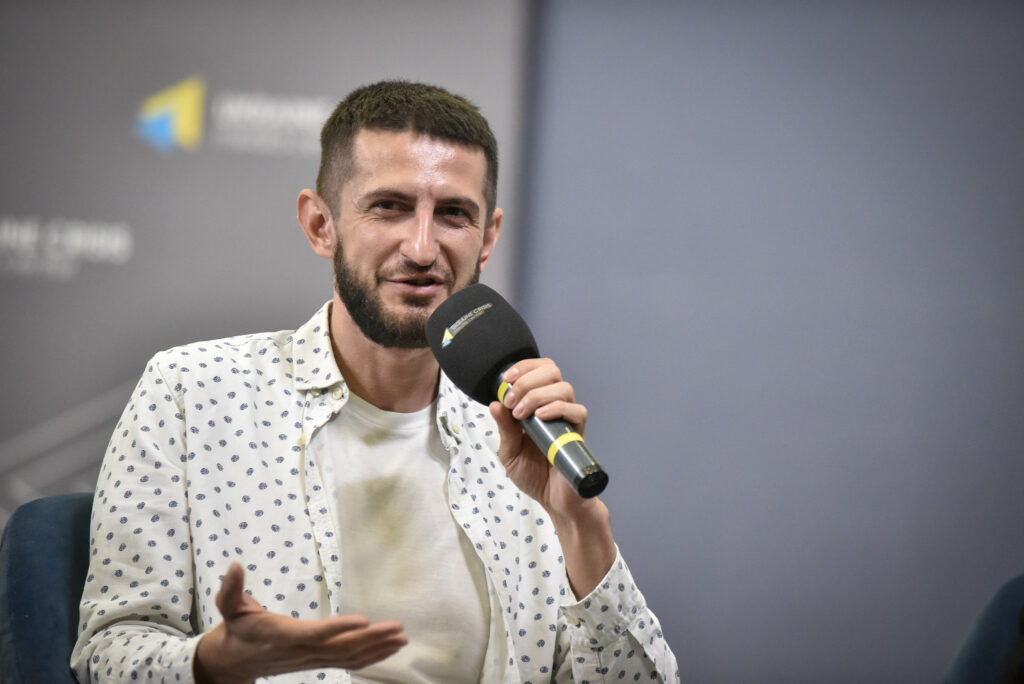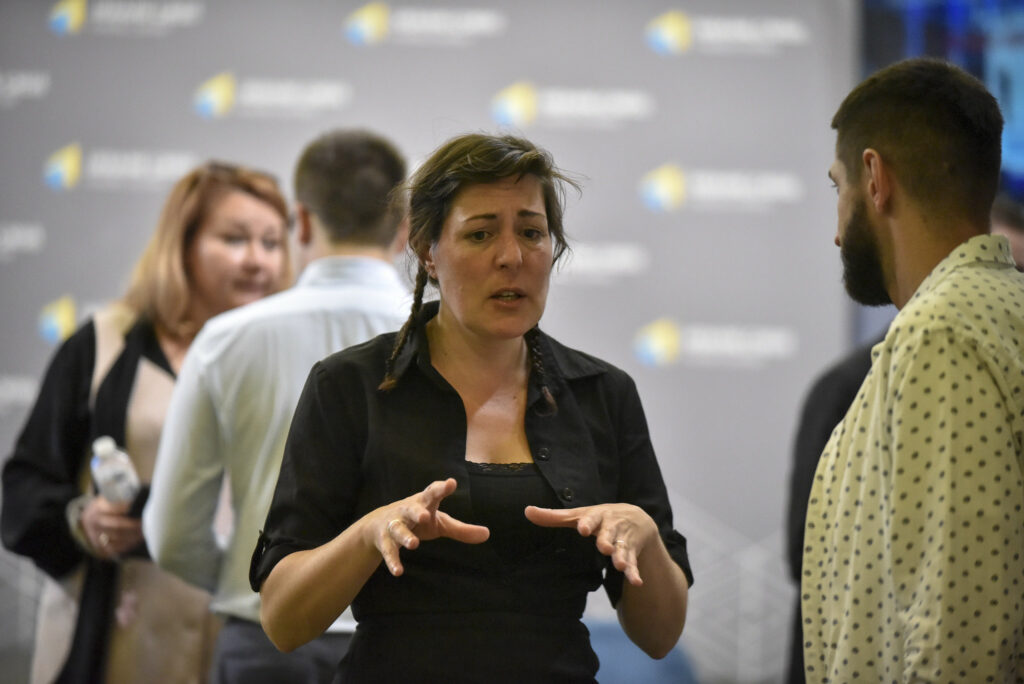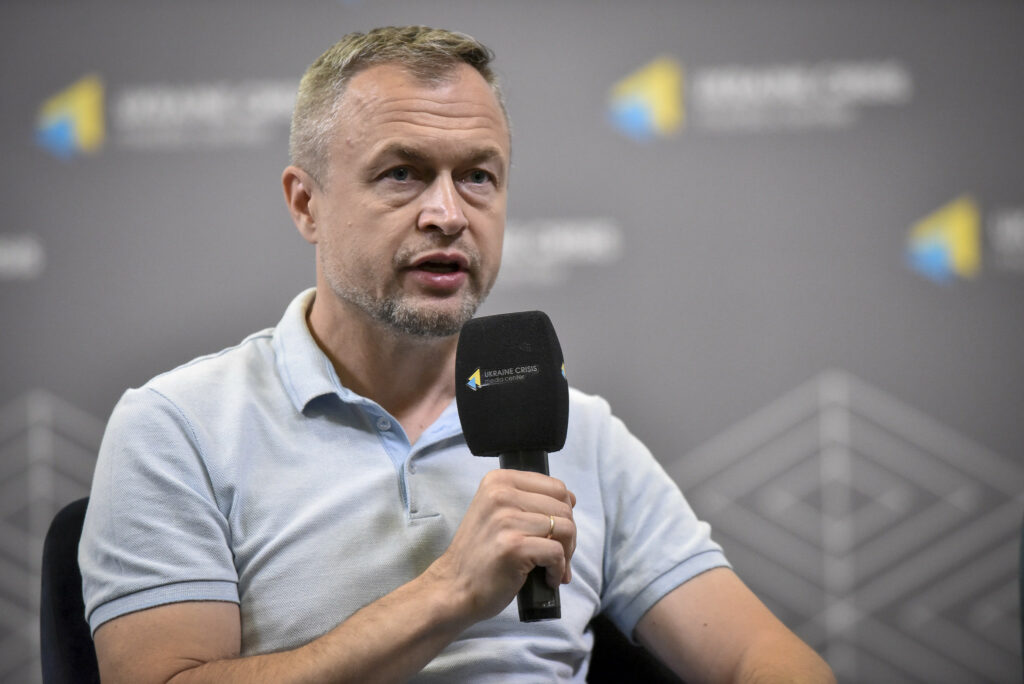In June, the first Global Peace Summit was held in Switzerland. Its decisions were supported by 80 countries. However, their number could be higher if it were not for Russia’s efforts to put pressure on the leaders of some states of the so-called Global South.
Ukraine prepared new proposals – the Plan for its victory in the war with the Russian Federation, which was presented to politicians in the USA. But Moscow is trying to hinder Kyiv’s peaceful efforts to establish a just peace on the territory that is an integral part of the European continent. What means of influence do the Russians continue to use? This issue formed the basis of the expert discussion “Russian disinformation as an obstacle to a just peace. Global dimension.”
Participants of the press tour to Ukraine – journalists from South Africa, Senegal, Tunisia, Ghana, Kenya, India, Mexico and Chile were invited to this event initiated by the Ukraine Crisis Media Center as part of the Unfold Ukraine to Global South project implemented in cooperation and coordination with the Open Society Foundation and funded by the International Renaissance Foundation.
According to Ivan Fechko, an expert of the Latin American and Caribbean Research Program of the Foreign Policy Council “Ukrainian Prism,” Russia’s invasion of Latin America can be stated on the example of Venezuela.
“Putin supports various dictatorships in these regions, which results in destabilization of the situation. After electoral frauds during Venezuela’s July 28 presidential election, everyone saw that the Russian Federation was one of the first to recognize Maduro as president. Earlier, Ukrainian journalists proved that the Russian Federation had sent grain stolen from the occupied territories of Ukraine to Venezuela in order to support Maduro during the powerful humanitarian crisis that was taking place there. In addition, with the beginning of the protests, Moscow sent the Wagner group to regulate the situation there,” the expert informed.
Other loyal to Russia countries – Cuba and Nicaragua – also use the alliance with the Russian Federation in order to achieve their goals.
According to Ivan Fechko, the Russian propaganda narratives are almost the same as they were 10 years ago, when the Russians invaded Ukraine.
“They say that the Russian Federation is fighting with NATO and not with Ukraine; they are trying to find fascists; they question the legitimacy of the Ukrainian government; they discredit the Armed Forces of Ukraine. In doing so, Russian propagandists send different messages to different audiences. Addressing the left-wing audience, they focus on anti-Americanism, NATO, and the Soviet Union’s ties with other countries. Addressing the right-wing audience, they emphasize that the Russian Federation is the only defender of ideology in the whole world,” he said.
In terms of media, Russian propaganda has a powerful resource on the continent. “Sputnik” and RT have an audience of 14 million viewers in Latin America, and therefore they spread propaganda, competing with global TV channels. This, according to the expert of the Ukrainian Prism program, should be stopped.
Ukraine also wants to convey its position to the world, but it chooses a different toolkit, primarily related to soft power.
“There should be not only government relations, but also interpersonal horizontal diplomacy between people, expert professional diplomacy, as well as cultural diplomacy,” stressed Deputy General Director of the Ukrainian Institute Alim Aliyev.
For this purpose, projects have been launched in Indonesia, South Africa, and Brazil this year alone. Now we are launching our projects in Mexico, India, and Kenya. Their goal is to tell more about Ukraine, the current situation, and show Ukrainian culture.”
“We have started working with the countries of Asia, Africa and Latin America in order to strengthen ties between Ukrainian artists, scientists, analytical centers and our partners abroad. For us, these are the first steps when we communicate with each other directly rather than through other countries and partners,” Alim Aliyev noted.
The Russian Federation also promotes cultural diplomacy, but what is behind it? The Deputy General Director of the Ukrainian Institute informed the participants about three Russian structures whose activities pursued the same goals as Russian propaganda.
“Rossotrudnichestvo” is the largest organization with the best financing. It is literally a Russian state agency that is supposed to create a positive vision of Russia through diplomacy.
“Pax Russia” is a foundation that was established as a non-governmental organization, but is actually financed from the state budget. It embodies the vision of the Russian world and the Russian Federation’s elites, who emphasize the uniqueness of the Russian world through the Russian language, ideology, and culture. “For several decades, ‘Pax Russia’ has been justifying the expansionism of the Russian Federation, spreading conservative visions and seeking to unite those who sympathize with Russians abroad,” the expert added.
The Gorchakov Foundation focuses on promoting the vision of the Russian Federation to foreign audiences through educational and academic programs. It is building a network of young professionals who can become the next generation of political elites. They are taught Kremlin narratives.
The participants asked Alim Aliyev about cultural skills used by Ukraine, because one cannot reduce everything to war and Russian. What does Ukraine offer the world culturally?
“This approach differs from one of merely visiting some country and saying that our culture is incredible. Instead, we are saying that our culture is as unique as yours. Let’s try to find points where we can unite our cultures. If we’re talking about the importance of freedom and dignity and how it all works within culture, resilience is extremely important to culture. And this is not only an issue of this war,” he answered.
Speaking about multiculturalism, the Deputy General Director of the Ukrainian Institute emphasized that he is Crimean Tatar, and Crimean Tatars differ from Ukrainians, because Muslims have their own language, culture, and their homeland is Crimea.
“Yes, I am Crimean Tatar, however, politically I am Ukrainian, since this is my land. Many Crimean Tatars are currently serving in the Ukrainian army because we are fighting for our land and our vision of the future,” he added.
Another topic of discussion was the clarification of Ukraine’s peace proposals to foreign journalists. As Director of the New Geopolitical Research Network Mykhailo Samus noted, Ukraine wants to present its vision of universal principles of complex peace around the world and not only in Ukraine.
“We understand that if we agree with the Russian Federation, surrender, we will continue to fight with many other countries for years to come. This peace formula is the one that will sustain a better and more convenient global order for all countries. In turn, the Victory Plan is something that allows us to supplement this peace formula. The Russian Federation and several other countries oppose this plan and this peace formula. North Korea, Iran, the Russian Federation and China produce all these weapons. So let’s be honest – if we talk about the victory plan, it is, first of all, a powerful military component. I believe I am not mistaken when I say that today NATO and the USA protect the Russian Federation, not Ukraine, because we are not allowed to fire Western missiles deep into Russia,” the expert admitted.
He was asked why Ukraine continues to insist on long-range missiles?
Mykhailo Samus explained that 90% of the military infrastructure carries out military operations within a radius of 300 kilometers. This is Russia’s typical doctrine of conducting military operations against Ukraine.
“If we destroy this infrastructure, the Russian Federation can really adapt and move, move 500-700 kilometers from the border with Ukraine. But then they won’t be able to conduct military operations, because they won’t be able to set up command posts and manage operations in the Donetsk and Luhansk regions,” said the Director of the New Geopolitical Research Network.
Volodymyr Solovyan, the head of the UCMC Hybrid Warfare Analytical Group, which had prepared the basis for this event touched upon another direction of cultural diplomacy.
“Higher education is a powerful lever in this regard. Unfortunately, after the start of a full-scale war, we cannot provide conditions for students to study in Ukraine, and today they study online. Nevertheless, we want to restart these connections with students from Africa and India. We used to have about 21,000 students from India studying medical sciences. In addition, we had a lot of students from Africa,” he explained.
Volodymyr Solovyan is convinced that given Ukraine’s experience not only in military affairs, but also in the fight against disinformation, it is very important to pass on this knowledge to others.
«Україна має рухатися вперед, тому що ми маємо шалену кількість досвіду у цій сфері. Я думаю, що багатьом країнам в Африці та Латинській Америці цей досвід буде дуже корисним. Особливо в питаннях протидії дезінформації. Тож я думаю, що це був один з прикладів того, як Україна може взаємодіяти з журналістами. Таким чином ми можемо говорити не тільки про Україну, але також пояснювати взагалі, як працює дезінформація. Після цього ви самі почнете розуміти, як потрібно взаємодіяти і чому росіяни намагаються впливати, використовуючи інформацію як загрозу», – сказав наприкінці обговорення керівник Групи аналізу гібридних загроз УКМЦ.
“Ukraine must move forward, because we have huge experience in this area. I think that many countries in Africa and Latin America will benefit from this experience. Especially in matters of combating disinformation. So I think that this was one of the examples of how Ukraine can interact with journalists. In this way, we can talk not only about Ukraine, but also explain how disinformation works in general. Thus you will begin to understand how to interact and why the Russians are trying to influence your countries using information as a threat,” said the head of the UCMC Hybrid Warfare Analytical Group at the end of the discussion.

